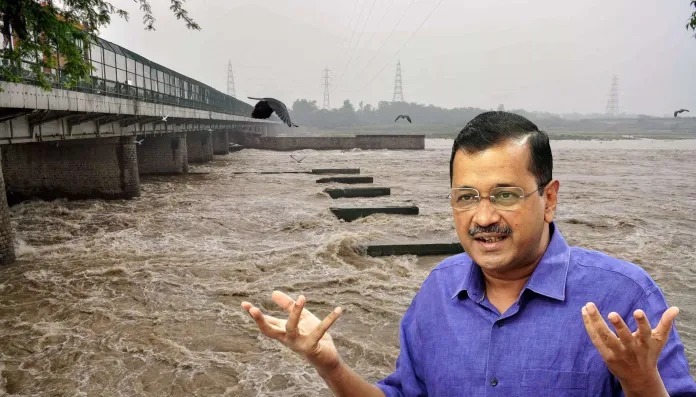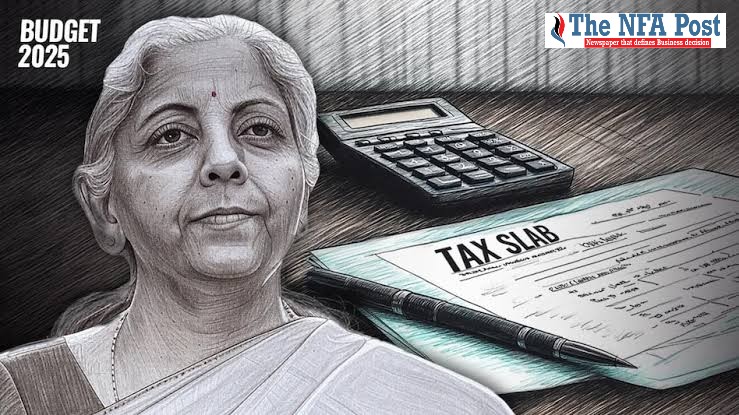I remember the day Bhau Torsekar, the esteemed Marathi journalist, made his prophetic remark: “Ab ki Baar, Kejriwal Yamuna Paar.” At the time, it seemed like an exaggerated prediction, but as the results of the Delhi Assembly elections rolled in, his words rang truer than ever. Arvind Kejriwal and his Aam Aadmi Party (AAP) did not just lose power—they were obliterated. The people of Delhi didn’t merely reject him; they exiled him politically, sending a resounding message that his rightful place was not the Chief Minister’s office but a cell in Tihar Jail.
The biggest takeaway from this election was the complete dismantling of AAP’s top leadership. Kejriwal, along with his jailed associates Manish Sisodia and Satyendra Jain, lost the people’s mandate. The Bharatiya Janata Party (BJP) secured a landslide victory with 48 seats, leaving AAP with a paltry 22. The verdict was unambiguous—Delhi had turned its back on the corruption and deceit that had come to define Kejriwal’s governance.
Kejriwal’s downfall began with the now-infamous Delhi liquor policy scam. His close confidants, Sisodia and Jain, were arrested for their involvement in the scandal, which revolved around illicit bribes and financial irregularities in granting liquor licenses. As the investigations intensified, the noose tightened around Kejriwal himself, leading to his eventual imprisonment. What followed was a steep erosion of public trust, culminating in this crushing electoral defeat. Delhiites had made up their minds—they would not be governed by a “kattar beimaan” (blatantly dishonest) leader.
If there was one figure who played a pivotal role in AAP’s downfall, it was Swati Maliwal. For months, she worked tirelessly, exposing Kejriwal’s failures through videos, public engagements, and relentless campaigning. While the mainstream media, particularly the Lutyens’ ecosystem, turned a blind eye to his misgovernance, Maliwal ensured the truth reached the people. Her efforts punctured the carefully curated image of Kejriwal as the champion of alternative politics. In many ways, this election was not just his defeat—it was also a reckoning for the media houses that shielded him for years.
A significant shift in this election was the consolidation of the Hindu vote in favour of the BJP. Many Hindus, feeling remorseful for not giving the BJP a more decisive mandate in the Lok Sabha elections, corrected their course in these state polls. This pattern extended beyond Delhi, as seen in the Milkipur by-election in Uttar Pradesh and BJP’s impressive showings in Maharashtra, Odisha, and Madhya Pradesh. The Ashvamedha horse of the BJP continued its march, bolstered by a strong regional network and alliances.
The ramifications of AAP’s loss are far-reaching. The Congress, which had aligned with AAP in the Lok Sabha elections, has now realised the folly of that decision. In 2013, it had propped up Kejriwal’s government to block the BJP, but this time, by strategically fighting against AAP, it has opened the doors for its own revival—especially in Punjab.
Punjab, which handed AAP a historic mandate in 2022, is now poised for a major political realignment. With Kejriwal’s credibility in tatters, Bhagwant Mann’s government in Punjab faces the risk of rebellion and defections. Many AAP MLAs were already uneasy with the party’s centralised leadership, and this electoral debacle will only accelerate their exit. The Congress, sensing an opportunity, could make a resurgence, while the BJP, ever-strategic, will likely wait for the right moment to make inroads.
Napoleon Bonaparte once said, “Never interfere with an enemy while he is in the process of making a mistake.” Prime Minister Narendra Modi seemed to have embodied this philosophy in dealing with Kejriwal. Instead of launching an all-out assault, the BJP allowed Kejriwal’s own misdeeds to bring him down. Had Kejriwal been perceived as a victim, he might have gained public sympathy. Instead, his self-inflicted wounds ensured his demise. For both the BJP and the Congress, the objective was clear—deny Kejriwal any chance of revival. As Ram Manohar Lohia astutely put it, to defeat a larger demon, one sometimes needs to use a smaller demon—while ensuring that the latter doesn’t grow too powerful. In this election, the two parties executed this strategy with precision, dismantling Kejriwal’s ambitions in the process.
The Delhi elections were more than just a political contest; they were a referendum on Kejriwal’s governance. The people of Delhi have spoken—they reject corruption, deception, and misgovernance. The same electorate that once celebrated him as the “aam aadmi” leader has now abandoned him, making him a cautionary tale for politicians who believe they can endlessly deceive the public.
With AAP’s defeat, the political landscape of Delhi has undergone a seismic shift. The BJP has solidified its dominance, the Congress has found a new lease of life, and the AAP experiment has collapsed. The road ahead is unambiguous—the people of Delhi have moved on, and Indian politics has turned a decisive page.

B D Narayankar
Senior Journalist and UNI Bureau Chief South India
















